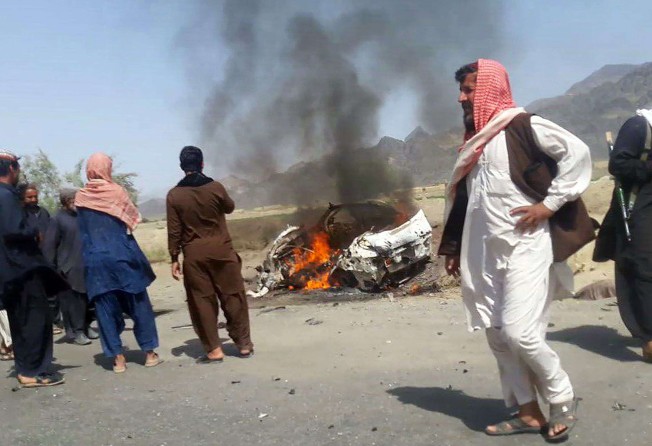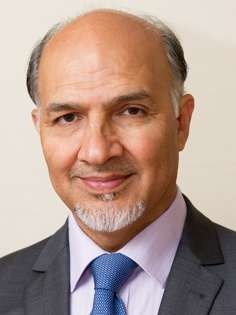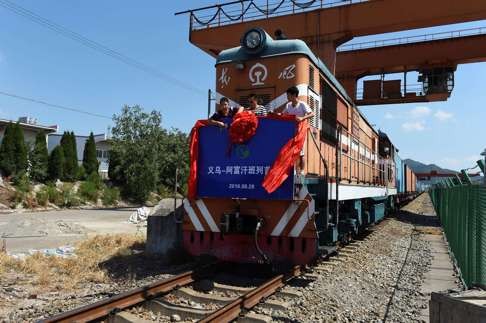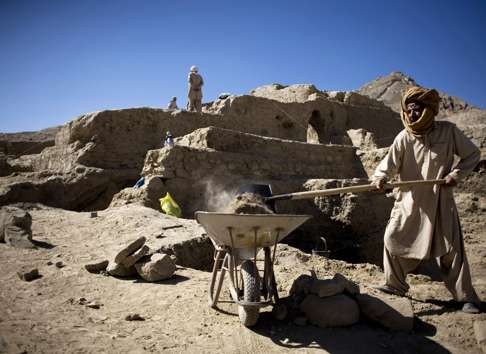Afghanistan’s man at UN urges China to put pressure on Pakistan over terrorism
Mahmoud Saikal says members of East Turkestan Islamic Movement have received training in Pakistan

Afghanistan’s UN ambassador says Pakistan is providing a safe haven for terrorists, such as the Taliban, and has called on China to assert its influence and dissuade Islamabad from supporting militant groups in the region.
Mahmoud Saikal said neighbouring Pakistan’s support of terrorists was the root cause of unrest in Afghanistan.
“Most terrorist activities [in Afghanistan] have links to Pakistan,” he said.
“The question is not about the Taliban. The question is about the forces behind the Taliban. Who is providing the safe havens and logistic support to the Taliban?”
Pakistan has allegedly been closely associated with the Taliban since its birth in the mid-1990s. The Afghan government has accused Pakistan of financing the Islamist group, an allegation Pakistani authorities deny.
Former Taliban leader Mullah Akhtar Mansour was killed in a US drone strike in Pakistan in May. Osama bin Laden, the founder and head of the Islamist group al-Qaeda, which was behind the September 11, 2001 attacks on the United States, was killed in Pakistan in May 2011.

Saikal said the Pakistani military, by supplying arms to terrorist groups and allowing them to establish bases in its territory, had used the Taliban, al-Qaeda and other proxies to wage an undeclared war against its regional rival India. Afghanistan had thus been a victim to the complex and often hostile relationship between its two neighbours, he said.
“On a daily basis, we lose about 30 to 40 people in Afghanistan because of violence, extremism, abuse and terrorism, with the majority of them civilians.
“It’s a matter of circles within Pakistan, which use the Taliban as a proxy for their misguided strategic interests. So this is why we need to deal with the issue at its core and not deal with the consequences of it,” Saikal said.
China has also suffered from the spread of terrorism in the region. Unrest in northwestern China’s Xinjiang region is blamed by Beijing on the East Turkestan Islamic Movement (ETIM), a separatist group founded by militant Uygurs.
The group has created major headaches for the Communist Party, and China has long been concerned that the unrest in Afghanistan would spill over into Xinjiang.
“Almost all members of ETIM who have left China have gone to Pakistan,” Saikal said.

“They have received training in Pakistan and have been trying hard to return to China to cause trouble.
“China should tell its strategic partner, Pakistan, to stop receiving members of ETIM, to stop their activities there, and stop their training there.”
Since December, China, Afghanistan, the United States and Pakistan have been working for reconciliation in Afghanistan as members of what has been dubbed the “quadrilateral coordination group”.
“China has been an active member,” Saikal said. “We feel that China is working hard. But so far, we see no sign of a paradigm shift on the part of Pakistan.
“We appeal to China to continue its efforts.”
In March, Taliban insurgents rejected an offer of peace talks from the Afghan government. The possibility of peace talks appeared to become even less likely after Mansour’s death in May.
US army General John Nicholson, the top American commander in Afghanistan, said in early September that the Taliban controlled more than 10 per cent of the Afghan population and was battling the government for control of at least another 20 per cent.
Saikal said the quadrilateral coordination group, with the full participation of China, “needs to work harder” at achieving a breakthrough – in particular, by influencing the terror groups’ major sponsor, Pakistan.
“China has soft power,” Saikal said. “That image of soft power could be tarnished if you have a strategic partner who believes in the use of violence in the pursuit of political objectives.
“We have seen China has its own way of influencing [international affairs] but we have yet to see the Chinese way of influencing Pakistan.”
China has in recent years tried to act as a mediator in Afghanistan’s peace process, hosting several secret meetings between the Taliban and the Afghan government. The latest was reportedly held in Beijing in July.
Almost all members of ETIM who have left China have gone to Pakistan. They have received training in Pakistan and have been trying hard to return to China to cause trouble
But Beijing’s close relationship with Islamabad has led to scepticism over the extent of China’s engagement, and whether China would push Pakistan hard enough to achieve a major breakthrough.
While the deadlock continues, Afghanistan has continued to draw support from the international community. The Afghan envoy said military equipment from countries including China, the US, Turkey and other Nato members as well as India and Russia had beefed up the defensive capabilities of Afghan forces.
With better equipment, Afghan forces successfully resisted a major attack by the Taliban during the spring and summer in Kabul, Afghanistan’s capital, and also inflicted heavy losses on the Taliban, Saikal said.
Despite the continuing violence, Saikal said Afghanistan had been working hard on efforts to rebuild the country, thanks to the support from the international community, including Beijing.
In early September, the first-ever cargo train from China arrived in northern Afghanistan’s Hairatan port, about 450km north of Kabul.
Saikal said the cargo train – which now runs twice a month but could turn into a weekly passage for both cargo and tourists in the near future – would open up a new trade route between China and Afghanistan.
“We feel that there is a potential for increasing the trade volume that is a lot higher than the existing half a billion [US] dollars,” Saikal said.
“The bulk of [the existing bilateral trade] is Chinese imports to Afghanistan, and [the level of] our exports is very small. So we hope that we can bring a balance to our trade,” Saikal said.
He added that the Chinese market could soon receive Afghan exports of marble, dried and fresh fruits, carpets and saffron – the world’s most expensive spice.
A large part of China’s engagement in Afghanistan has seen it investing in tapping the country’s mineral resources, which are estimated to have a value of about US$1 trillion.
A Chinese government-backed mining company spent US$3 billion on a copper mine project in Mes Aynak, an ancient Buddhist city. But the lack of any comprehensive railway network to transport the metal out of the landlocked country has posed a huge challenge to developing the project further.
When Afghanistan’s President Ashraf Ghani first visited China in 2014, Beijing promised to support his nation’s infrastructure plan by providing expertise and funds to help Afghanistan build roads and gas and water pipelines across the country.
China has also provided funds for Afghanistan to build 10,000 residential units in Kabul to accommodate the massive flow of the nation’s refugee returnees in recent years.
“Around 60 to 65 per cent of the houses you see in Kabul are informal because we have seen such a massive return [of refugees],” Saikal said.
“It’s impossible for any government to provide housing for such a big number of people.
“So this is why providing affordable housing for our people is important.”
With an improved infrastructure network, Saikal said Afghanistan hoped to capitalise on its geographic location and abundance of natural resources to turn itself into a “trade and transit roundabout” connecting central Asia, South Asia, the Far East and the Middle East, and to play an active role in China’s One Belt, One Road initiative.
This refers to Beijing’s development strategy to revive the land and maritime Silk Roads dating back to the days of Marco Polo. The ”belt” in the plan refers to a vast area in Eurasia, and “road” stands for the sea route that links China’s coastal cities to Africa and the Mediterranean, passing key ports in Southeast Asia and the Suez Canal.
However, the Afghan envoy also reiterated the importance of finally attaining stability in war-torn Afghanistan.
“For the success of Chinese diplomacy in the region, and for the success of the One Belt, One Road initiative of China, we need a secure region,” Saikal said.

